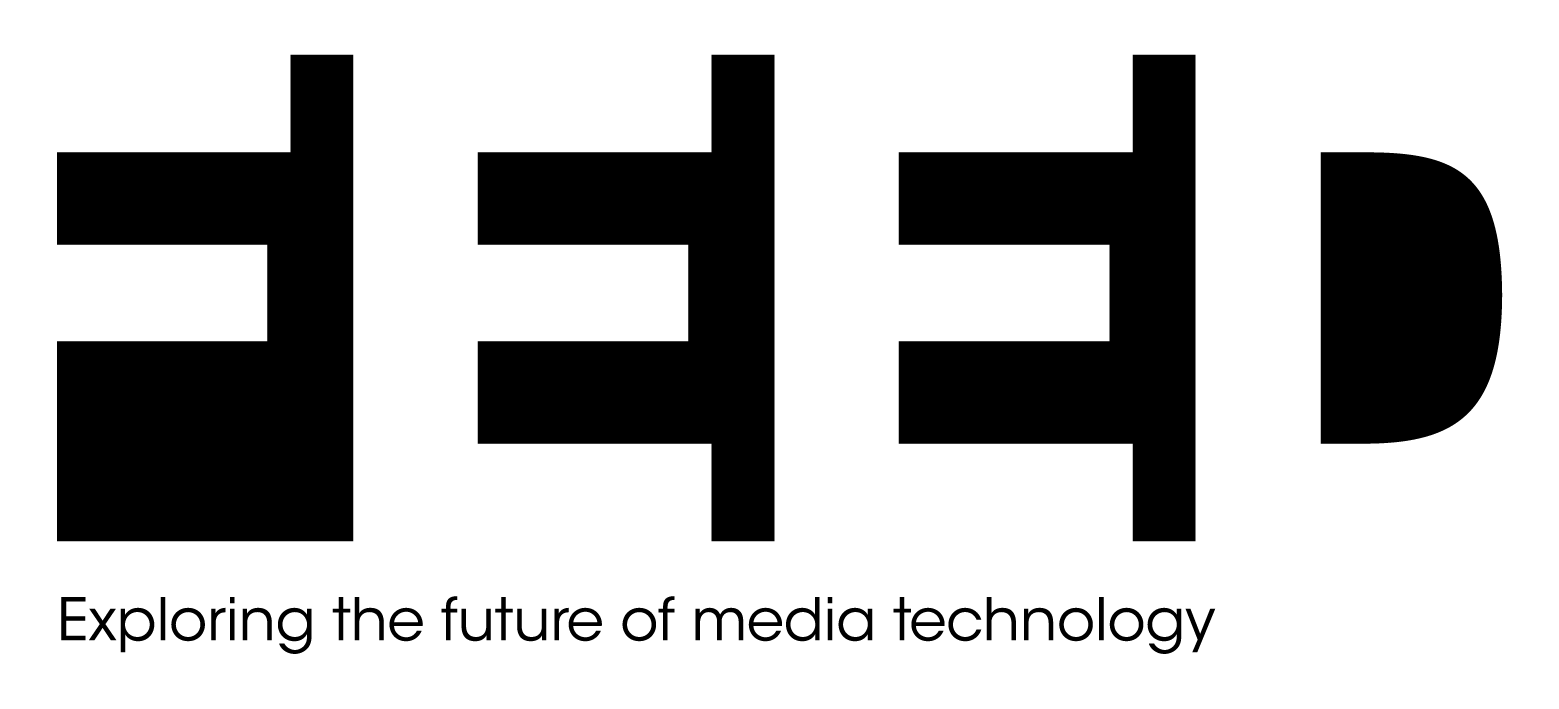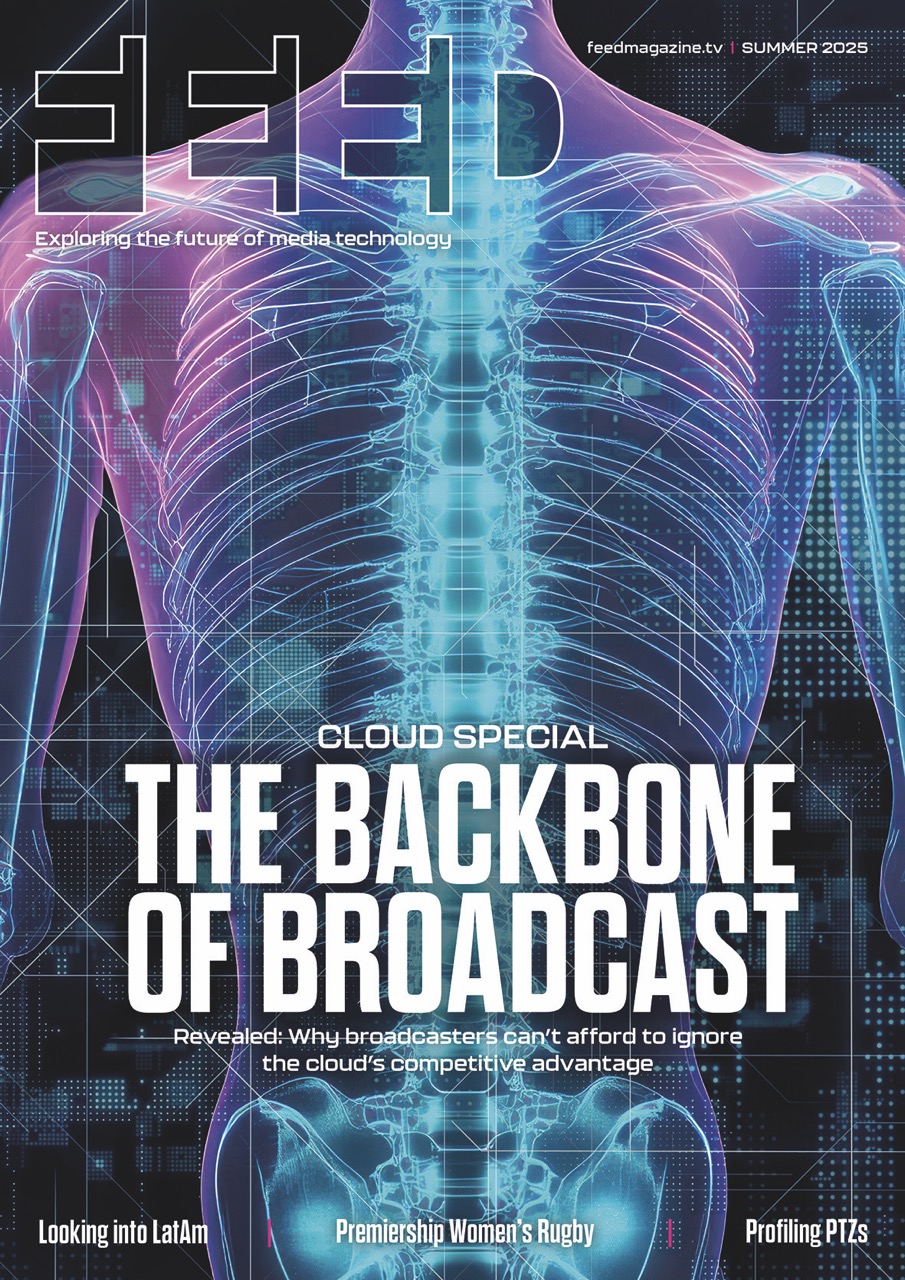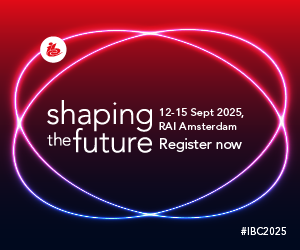Sustainable Journeys

Posted on Sep 20, 2023 by FEED Staff
Six organisations, six unique journeys; each in search of a future where a notoriously carbon-intensive industry can reduce its impact on the environment
GREENIFYING OB
The sheer extent of OB company EMG’s sustainability progress is impressive. Among other highlights, 2021 saw it become the first OB and facilities company in the UK to install its own HVO (hydrotreated vegetable oil) Green D+ fuel station. This fuel has up to a 90% reduction in CO2 emissions compared to regular diesel.
Then, earlier this year, the company introduced six new golf-focused OB trucks featuring Volvo FH tractor units. These engines deliver a 7.5% increase in fuel efficiency and adhere to the Euro 6 standard for clean exhausts. Also in 2023, EMG announced that it had become the first OB specialist to achieve the DPP Committed to Sustainability mark, which confirms adherence to the Digital Production Partnership’s scheme for improving environmental sustainability across the media industry.
Rohan Mitchell, group ESG director at EMG, says the company has been ‘engaged in conversations with our clients for years, identifying the most cost-effective and energy-efficient solutions for each type of production’ – leading to significant infrastructure investment to support more sustainable productions. For the sector as a whole, he believes that broadcasters and production companies have become ‘more engaged in the sustainability discussion and are much more questioning of facilities companies and the scope of emissions’.
More systematic, sector-wide reporting of emissions is the next big hurdle for the industry, he claims. GHG Scope 3 – a standard that accounts for and reports emissions from companies of all sectors globally – should be a focus for broadcast, Mitchell adds. EMG itself is currently in the process of compiling a baseline carbon emissions report that will include Scope 3.
Since 2022, EMG has reported its carbon emissions to the CDP (Carbon Disclosure Project), one of the preferred reporting frameworks for clients within the media industry. Mitchell adds: “For each OB, we can supply data such as number of crew attending (including rig and TX day), crew travel to the OB, fuel used onsite, accommodation and movement of vehicles to the OB. For example, we worked closely with BT Sport on their submissions for Albert regarding the rugby union and Uefa Champions League, as well as with Sky Sports on its own certifications.”
TAKING INITIATIVE
Sébastien Verlaine, the head of marketing and communications at live production solutions innovator EVS, highlights a sequence of events in 2020-21 as having been decisive in shaping the company’s sustainability path. “We began to review some of our processes when we acquired the media network infrastructure company Axon in 2020,” he recalls. “Soon after that, we had flash floods in Belgium and Germany, which really impacted some of our people who work there. That contributed to a sense of solidarity and duty to do something about environmental impact and act now. As a result, we began implementing initiatives at different levels of the company.”
Earlier this year, the company published its second sustainability report (for fiscal year 2020), which outlines its advances in three primary areas (planet, people & communities and governance). This report will continue to be an annual occurrence. Subsequently, in May, EVS announced environmental, social and governance (ESG) research firm Morningstar Sustainalytics had awarded it a ‘low risk’ rating of 13.5 – down 9.2 points from the previous year and in the seventh percentile of Sustainalytics’ global universe of more than 15,000 rated companies.
Specific developments include a major reduction in the impact of staff travel – including a requirement, starting this July, that those ordering company cars must choose electric vehicles – and multiple measures at EVS sites, such as the installation of solar panels and water reuse. On the R&D side, the company has long been shifting more towards software-based solutions. Although in terms of hardware: “We’re looking at how this tech can take up less rack space for customers, as well as how we can reduce the energy consumption.”
Like every contributor to this piece, Verlaine stresses the importance of collective action around sustainability. “It’s not something you can do on your own.” He says that the general reaction to EVS’s programme has been very positive. For the next steps, the company is currently reviewing its materiality matrix – a tool that allows a business to identify and prioritise the ESG issues that are most critical to its own organisation – and establishing longer-term sustainability targets.
AN INDUSTRY RESET
“When Dock10 started 11 years ago, sustainability was very much a paper exercise for customers,” recalls COO Andrew Culley of the origins of television facility Dock10 in Salford, UK, which houses ten purpose-built studios and extensive post-production services. “Mostly, we were asked about sustainability so they could complete forms for industry tick boxes. But the world’s changed, and people now care about sustainability; they really want to know what we are doing and to understand the impact of what they are doing.”
The company has a ‘commitment to excellence’ statement, through which it is resolved to operate a business that meets people’s expectations on sustainability – ‘both in principle and in action’. Culley notes that systems are regularly and independently assessed against national and international best-practice standards, while low-carbon choices are used for commuting business travel and the supply chain, including the cycle-to-work scheme, minimising business travel, enabling home working and buying from local suppliers.
He adds: “The Dock10 facility is a net-zero-carbon building, and we are proud to hold several UKAS-accredited certifications, including ISO 50001 energy management and ISO 14001 environmental management. These are the result of tangible actions that speak so much louder than words. Sustainability pervades our entire business because we’ve embedded strong ESG policies and practices so deeply that they are now part of our company’s DNA.”
Regarding broader technological changes that benefit sustainability, Culley concurs with the suggestion that the pandemic era has helped reset industry thinking. “I think we’ve become more open to new concepts. Ideas about remote working, for example, were hard to get over the line, but overnight we went from ‘we could do this’ to ‘we must do this!’. We embraced new technologies and processes enabling us to work effectively from anywhere.”
Culley – who says the company is reducing its carbon footprint by 5% each year with the objective of becoming carbon neutral by the end of 2025 – also highlights Dock10’s impressive collaboration with IPE. This has resulted in the planting of 2500 trees in the Atlantic rainforest of Brazil to create an area of forest that is the same size as the physical footprint of its building (12,500 sq m).
“These trees have been grown from seed and planted as part of a globally important tree-corridor project, joining up isolated patches of rainforest,” he says. “Dock10’s trees will help form a corridor enabling endangered species such as the jaguar and black lion tamarin to move between areas. This brings environmental benefits beyond carbon offsetting – and to me that epitomises Dock10’s whole approach to sustainability.”
ACCELERATING NEUTRALITY
While Sony started to routinely gather data around sustainability in the mid-nineties, it was in 2010 that the global technology leader’s various ideas and initiatives began to coalesce into a longer-term strategy. It was then that the company launched Road to Zero, an environmental plan aiming to achieve zero environmental footprint throughout the life cycle of its products and activities by 2050.
A strong indication of Sony’s progress since then arrived in May 2022, when the company announced it was accelerating its goal of achieving carbon neutrality throughout the entire value chain by ten years – from 2050 to 2040. The company also revealed that its target for achieving 100% renewable energy had been brought forward a decade – this time from 2040 to 2030.
Barbara Rosseel, strategic marketing lead at Sony Professional, points to advances at the Pencoed, Wales manufacturing site as being indicative of the company’s overall direction of travel. “The site has been 100% dependent on renewable energy since 2018,” she says. “It’s also working on targeted consolidation efforts – for example, when you need to ship products, they are brought together into a smaller number of flights. To date, that’s helped reduce outgoing flights by 138 each year.”
In terms of the carbon footprint of its actual solutions, Rosseel underlines the importance of being able to meet the evolving expectations of content creators, many of whom will now be seeking compliance with specific decarbonisation targets, including those attached to financial subsidies. “In France, you must show carbon emission reports to qualify for assistance with AV productions,” she says. “Sony is focused on how we can help our production customers in that area, as well as helping them achieve their overall sustainability visions.”
Meanwhile, the manufacturer is continuing to evaluate the effect of emerging technologies on decarbonisation. The rise of 4K – and now potentially 8K – is one area of concern, given its escalating demands on processing and power consumption. “We are working on codecs that allow for files to be smaller and power usage to be reduced.” Sony Pictures has also recently issued fascinating research comparing the emissions of more conventional, on-location production with those from virtual production – find this by following the QR code.
CANADIAN COLLABORATION
The announcement in June that CBC/Radio-Canada is one of 22 Canadian broadcasters uniting to form Canadian Broadcasters for Sustainability, a group bringing together broadcasters from different linguistic and regional markets across Canada with the goal of combatting climate change, is the latest milestone in what has been an eventful recent sustainability journey.
Indeed, in the same month, the broadcaster marked the second anniversary of Greening Our Story, a five-year environmental strategy – culminating in 2026 – whose objective is to take a leading role in advancing sustainable production practices in the country’s media industry. Among other measures, the plan committed the broadcaster to measuring the carbon footprint of 100% of its in-house productions using the Albert calculator (see our next section), ensuring at least 25% of in-house productions are ‘Albert-certified’ as sustainable, and measuring the carbon footprint of 50% of external productions using Albert.
The latest full update – issued in December 2022 – indicates that the broadcaster is making good progress. Carbon emissions have been reduced by 11%, while energy and water consumption are down by 10.5% and 11% respectively. Already, 32% of in-house productions used the Albert calculator, while fuel-efficient or alternative-energy vehicles make up 27% of the fleet.
Athena Trastelis, senior manager for environmental sustainability at CBC/Radio-Canada, says that the company is now devising sustainable procurement guidance which will help promote goods and suppliers with sustainability programmes. At the end of the five-year period, she notes: “We want there to be the ability for key suppliers to measure their emissions, share that information with us to get more accurate readings of how it all relates to Scope 3, and then work with them to set carbon reduction targets and net zero plans. We want to make it possible for us to all be on a common path together.”
Invited to consider the industry’s overall progress towards a greener future, she confirms that certain organisations are ‘further along the road than others’, but overall strikes an optimistic note. “Engagement has been super high – and I am really excited and proud about that,” she enthuses. “People want to get involved and see that it’s not about competition between organisations. We all have a common purpose and goal here, which is how to reduce emissions, get to net zero and be responsible eco-citizens of the world.”
OFFICIATING SUSTAINABILITY
As will be clear from this article, the work of TV- and film-focused environmental organisation Albert has been influential both within and beyond its UK base. Originating as a BBC project in 2011, Albert was soon adopted by Bafta. Since then, the use of its carbon calculator – which allows a production to calculate its predicted total carbon footprint – has become increasingly prevalent.
From 2014, the organisation has offered a certification process (leading to a one-, two- or three-star certificate) as a way to reward productions for not only measuring their environmental impact, but taking active steps to reduce it. Productions that complete certification are also given use of the Albert Sustainable Production logo on their credits.
Highlighting the initial role of Albert in ‘raising carbon and sustainability literacy across the industry’, Albert’s head of industry sustainability, April Sotomayor, says the last 12 years have witnessed “an evolved sophistication of the offering, including the carbon calculator, certification, training and affiliate programmes that can allow smaller production companies who lack the resources of larger companies to benefit, too. Also emerging has been a call to action for content creators, helping them do what they do best – storytelling – with the addition of climate and sustainability aspects.”
Among the recent developments are the introduction of the Creative Energy Project – which supports productions by helping them switch to a 100% renewable power supplier – a new Studio Sustainability Standard, plus an international licensing partnership with Sustainable Screens Australia (SSA) that will localise the calculator for the Australian market, as well as enabling the creation of bespoke standards of certification processes using the Albert toolkit.
Albert has also announced a BFI partnership, confirming an intention to expand its reach in film. Neal Romanek, Albert’s head of communications and events (and, of course, former editor-in-chief of FEED!), says adoption has involved “primarily broadcasters until recently – that’s to be expected as broadcast is huge in the UK. But now there’s a chance to train film teams to use the calculator and work on sustainability.”
The BFI partnership builds on previous collaborations, says Albert project manager Lisa Howe. “Our priorities are to work with the BFI to help embed sustainable practices within both its film production and development funds, while equipping filmmakers with knowledge to make informed creative and practical choices on their films.”
Originally published in the Autumn 2023 issue of FEED.










